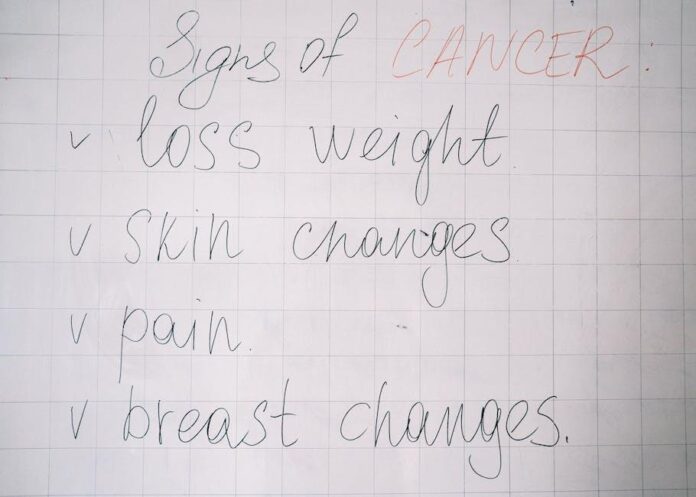
Thalassemia is a genetic blood disorder that affects the production of hemoglobin, the protein in red blood cells that carries oxygen. People with thalassemia produce fewer healthy red blood cells and less hemoglobin, leading to anemia, fatigue, and other symptoms. There are two main types of thalassemia, alpha-thalassemia, and beta-thalassemia, each with its own set of symptoms and severity.
In this article, we will explore the symptoms of thalassemia and how they can impact the lives of those affected by this condition. Understanding the signs and symptoms of thalassemia is crucial for early diagnosis and treatment, so let’s delve into the common indicators of this disorder.
1. Fatigue
One of the most common symptoms of thalassemia is persistent fatigue. This is due to the reduced oxygen-carrying capacity of the blood, which can leave individuals feeling tired and weak. Fatigue may be particularly pronounced after physical activity or exertion, and can significantly impact daily functioning.
If you or a loved one is experiencing unexplained and persistent fatigue, it is important to consult a healthcare professional for a thorough evaluation to rule out underlying conditions such as thalassemia.
2. Shortness of Breath
Individuals with thalassemia may also experience shortness of breath, especially during physical exertion or mild exercise. This is a result of the decreased oxygen supply to the body’s tissues, leading to feelings of breathlessness and difficulty catching one’s breath.
If shortness of breath is interfering with daily activities or is accompanied by other concerning symptoms, seeking medical advice is crucial for proper diagnosis and management of thalassemia.
3. Pale or Jaundiced Skin
Another common sign of thalassemia is pale or jaundiced skin. Anemia resulting from thalassemia can cause a paler complexion due to decreased red blood cell production. Additionally, jaundice, characterized by a yellowing of the skin and whites of the eyes, may occur due to an increase in the breakdown of red blood cells.
It’s important to note any changes in skin tone and consult a healthcare professional for further assessment, especially if accompanied by other symptoms of thalassemia.
4. Delayed Growth and Development
In children with thalassemia, delayed growth and development may be observed. This can manifest as slow growth, delayed puberty, and smaller stature compared to peers. The reduced oxygen supply to tissues and organs can impact overall growth and development in children with thalassemia.
If you notice any growth-related concerns in your child, consulting a pediatrician for appropriate evaluation and monitoring is essential for early intervention and management of thalassemia.
5. Abdominal Swelling
Individuals with thalassemia may experience abdominal swelling, also known as hepatosplenomegaly, due to an enlargement of the liver and spleen. This can cause discomfort, bloating, and a feeling of fullness in the abdomen. It is important to seek medical attention if abdominal swelling is persistent or accompanied by other concerning symptoms.
A healthcare professional can perform a thorough examination and recommend appropriate testing to determine the cause of abdominal swelling and provide proper management for thalassemia-related complications.
6. Dark Urine
Dark urine is another symptom that individuals with thalassemia may experience. The breakdown of red blood cells can lead to the release of bilirubin, a pigment that gives urine a darker color. If you notice a significant change in the color of your urine, it’s advisable to consult a healthcare professional for further evaluation and testing, especially if other symptoms of thalassemia are present.
Proper diagnosis and management can help address the underlying cause of dark urine and ensure appropriate treatment for thalassemia-related complications.
7. Bone Deformities
In severe cases of thalassemia, individuals may develop bone deformities, particularly in the face and skull. This is known as “crew-cut” appearance on skull X-rays and “chipmunk” faces due to an overgrowth of bone marrow in the facial bones. These skeletal changes can impact physical appearance and may require specialized care and intervention.
If you or a loved one is experiencing bone deformities or changes in facial structure, seeking medical attention from a specialist in thalassemia care is essential for proper evaluation and management of this aspect of the condition.
8. Frequent Infections
Thalassemia can weaken the immune system, leading to a greater susceptibility to infections. Individuals with thalassemia may experience frequent infections, such as respiratory infections, urinary tract infections, or skin infections. It is important to seek medical advice for proper management of infections and to address underlying immune system challenges associated with thalassemia.
By staying vigilant for signs of infection and seeking timely medical care, individuals with thalassemia can receive appropriate treatment to minimize the impact of recurrent infections on their health.
9. Enlarged Spleen
An enlarged spleen, known as splenomegaly, is a common complication of thalassemia. The spleen plays a crucial role in filtering the blood and removing old or damaged red blood cells. In thalassemia, the spleen may become overactive and enlarge in response to the increased workload, leading to discomfort and potential complications.
It’s important to have an enlarged spleen evaluated by a healthcare professional to determine the cause and appropriate management, particularly in the context of thalassemia-related complications.
10. Heart Problems
Thalassemia can also affect the heart, leading to potential complications such as arrhythmias, heart failure, and an enlarged heart. The chronic anemia and iron overload associated with thalassemia can strain the heart and cardiovascular system, increasing the risk of cardiac issues.
Individuals with thalassemia benefit from regular cardiac monitoring and specialized care to address any potential heart-related concerns and ensure optimal management of thalassemia-related cardiac complications.












